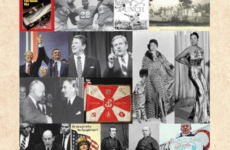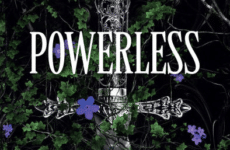By Stephanie Menders | Managing Editor
In Hawaii, it’s Discoverers’ Day. In South Dakota, it’s Native Americans’ Day. Washington State doesn’t call it anything at all. But if you look at the Salve Regina University calendar, you’ll see that Monday, October 10 is listed as Columbus Day.
No corner of the country is indifferent in the Columbus Day debate, especially New England, a region with 17 active Native American tribes. Salve continues to recognize the holiday in its original form while certain surrounding universities, like University of Connecticut, Suffolk University, and University of Hartford, do not. The Rhode Island School of Design lists it as Columbus Day, but does not cancel classes. Brown University changed the name altogether (twice). Universities in the area clearly have addressed Columbus Day differently- so what should Salve do?
On Tuesday, October 4, I published an online survey asking students at Salve that very question and 76 students had responded by the end of the week. While 21 percent were personally offended by the recognition of Columbus Day, 78 percent understood why someone else would be offended. Of the 59 people who understood how the holiday might offend others, 45 people responded that they would like to see the university change the name on the calendar. When asked for alternative names, the majority of responders suggested, “Indigenous Peoples’ Day”, “Native Americans’ Day”, or “Fall Break.”
When asked why or why not the name should be changed on Salve’s calendar, students responded passionately from both sides. “I think it is ridiculous that we celebrate Columbus Day but not Veteran’s Day,” one student responded. “Especially at a school with an ROTC program.”
Other students mentioned that the recognition of Columbus Day at a mercy institution is “hypocritical.” “Columbus’ ‘discovery’ led to the mass genocide of indigenous people,” says one student. “The fact that a school founded on mercy chooses to celebrate a holiday based on what is essentially the opposite of mercy is strange.”
The mercy mission is something that is also on the mind of Dr. Jordan Miller, an adjunct professor at Salve. He says that Columbus’ “atrocities” are no longer considered controversial. “[Columbus] viewed indigenous people of the America’s as inferior and viewed it as his duty to expropriate as many resources as he possibly could,” Miller says. “That’s all stock history at this point and it’s all explicitly contrary to the mercy mission of this university.”
Other students defended the holiday as recognition of an important moment in the nation’s early history. “Although I understand the controversy behind the holiday” one student writes, “we are celebrating the nation.”
According to a New York Times article, Brown University changed their calendar listing to “Fall Weekend” in 2009. In 2015, the name was changed again after student organization, “Native Americans at Brown,” voiced their grievances with the name. This year, the Brown calendar lists October 10 as “Indigenous People’s Day.” According to a motion presented to the faculty, this change is intended to “recognize the contributions of Indigenous People/ Native Americans to our community and our culture and foster a more inclusive community.”
Although the survey did not yield 100% results in either direction, it begs the question: if some students are personally offended, even just 21% of a sample population, is it worth reconsidering?














